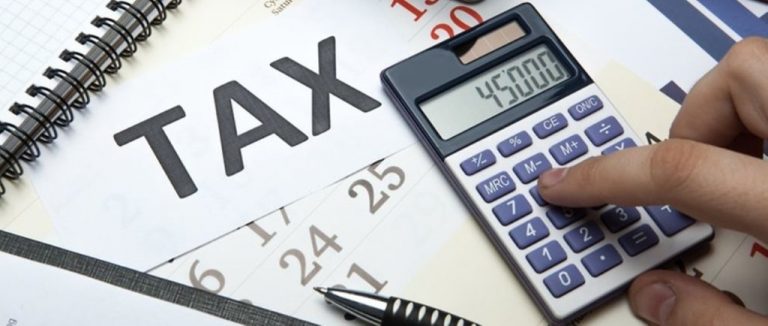
The Nigerian government has taken steps towards increasing revenue collection by introducing a new bill that proposes a 5% excise duty on telecommunications, gaming, and betting services.
The measure is part of a broader initiative aimed at overhauling Nigeria’s tax framework, as outlined in the proposed “Nigeria Tax Act.” The bill, obtained from the National Assembly and dated October 4, 2024, seeks to consolidate and revise existing tax laws, targeting income, transactions, and various financial instruments across the nation.
According to the provisions of the bill, the excise duty will be applied to both postpaid and prepaid telecommunications services regulated by the Nigerian Communications Commission (NCC). This duty will extend to other sectors, including gaming, gambling, lotteries, and betting activities, which have grown significantly in Nigeria over the years.
Register for Tekedia Mini-MBA edition 19 (Feb 9 – May 2, 2026): big discounts for early bird.
Tekedia AI in Business Masterclass opens registrations.
Join Tekedia Capital Syndicate and co-invest in great global startups.
Register for Tekedia AI Lab: From Technical Design to Deployment (next edition begins Jan 24 2026).
The bill stipulates that all transactions within these services will attract the excise duty, as prescribed under the Tenth Schedule of the Act.
The text of the document clearly states, “Services, including telecommunications, gaming, gambling, betting, and lotteries however described, provided in Nigeria shall be charged with duties of excise at the rates specified under the Tenth Schedule to this Act in a manner as may be prescribed by the Service.”
This means that once the bill is passed into law, all services in the aforementioned categories will be subject to the excise duty, potentially leading to higher costs for consumers in sectors that are widely used across the country.
Currency Transactions and Exchange Regulations
The new bill also aims to regulate currency transactions by introducing a mechanism where any disparity between the Central Bank of Nigeria’s (CBN) official exchange rate and the actual rate used in transactions would attract excise duty. Under the proposed legislation, if the exchange rate in a currency transaction exceeds the CBN’s official rate, the excess amount will be considered an excise duty liability to be paid on a self-assessment basis.
The bill specifies: “Where an exchange of currency transaction involving the Naira is conducted within or outside Nigeria – (a) the transaction shall be conducted at an exchange rate not exceeding the prevailing exchange rate at the official market authorized by the Central Bank of Nigeria; and (b) where the exchange rate of the transaction exceeds the prevailing exchange rate at the official market authorized by the Central Bank of Nigeria, the excess shall be payable as excise duty by the seller on a self-assessment basis as provided in the Nigeria Tax Administration Act.”
Cultivating A New Tax Regime
As oil revenues continue to fluctuate, Nigeria has been seeking to expand its non-oil revenue sources to stabilize the economy. The government anticipates that implementing excise duties on sectors such as telecommunications and betting, which have shown rapid growth, will help increase the country’s tax revenue and strengthen the regulatory framework for currency transactions.
The decision to target these sectors is particularly significant given the expanding user base of telecommunications services and the rising popularity of gaming and betting. The telecom industry has experienced substantial growth in recent years, with millions of Nigerians relying on mobile networks for communication and internet access.
Similarly, the betting industry has seen increased participation, driven by digital platforms offering online gambling and lottery services. Reports indicate that approximately 60 million Nigerians aged 18-40 actively engage in sports betting, driving an industry that generates an estimated annual revenue of N730 billion.
By imposing a 5% excise duty on these popular services, the government aims to capitalize on their widespread usage to boost tax revenue. But this move is expected to significantly affect the cost of telecom services and betting activities, potentially leading to price hikes for consumers.
However, authorities remain optimistic that the revenue generated from these excise duties will help mitigate budgetary constraints and provide a more sustainable approach to fiscal management.
Concerns Over Potential Impact on Consumers
While the proposed tax reforms are aimed at increasing government revenue, there are concerns about the potential impact on consumers and businesses. Telecom services are essential for daily activities in Nigeria, from communication to mobile banking, and any increase in service costs could place additional financial burdens on citizens.
The telecom operators have made several attempts in recent times to increase internet and call tariffs, citing the rising cost of operation. The moves, though have been rejected by the NCC, underline the intense pressure the current economic downturn has placed on the telecom sector.
Many have argued that imposing additional taxes on essential services during a period of economic hardship may exacerbate existing financial pressures on consumers. With inflation remaining high and disposable income constrained, critics believe the excise duty could make telecommunications and internet services less affordable for many Nigerians, potentially widening the digital divide in the country.
While many see excise duties on betting and gaming services as a way to curb the growing gambling culture in the country, others warn that it could affect the revenue of companies in the sector, potentially leading to job losses in the industry.
The government’s broader strategy to enhance non-oil revenue collection comes at a time when fiscal pressures are mounting, with the country’s debt levels rising and public sector funding needs expanding. The new excise duty regime is expected to complement other tax measures, such as Value Added Tax (VAT) and corporate income tax.
The legislation also seeks to curb currency speculation and illicit financial flows by aligning currency exchange practices with the CBN’s official rates.



